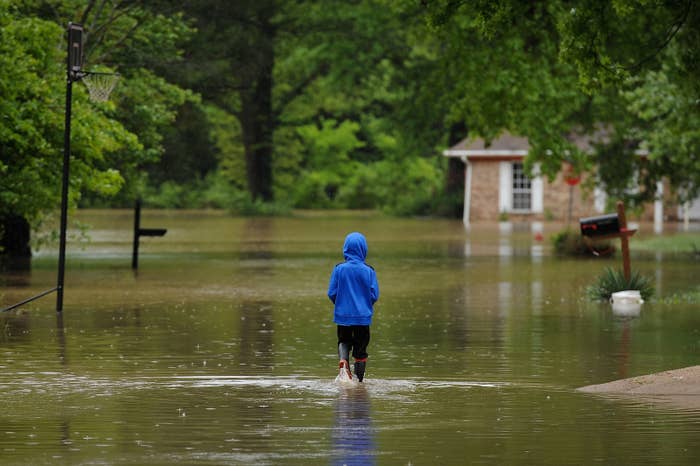
A draft government report concluding climate change is already dramatically impacting the US and humans are largely to blame rests in the hands of a White House that is openly skeptical about whether climate change is real.
The report is making waves after the New York Times published two different versions of it, and cited concerns from scientists about whether the White House would try to censor it in some way.
The New York Times suggested that both versions of the Climate Science Special Report (CSSR) were leaked. However, the first was from December and released online for public comment between Dec. 15, 2016, and Feb. 3, 2017, and again posted online in March. The second version, dated June 28, had not been previously published.
We've posted the latest draft of the NCA climate report — afaict this version has *not* been made public before: https://t.co/S5Uv9vphgj
This confusing timeline was criticized by Press Secretary Sarah Huckabee Sanders on Tuesday afternoon.
“It’s very disappointing yet entirely predictable to learn the New York Times would write off a draft report without first verifying its contents with the White House or any of the federal agencies directly involved with climate and environmental policy,” she said. (The New York Times reached out to the White House and Environmental Protection Agency officials for comment on the story.)
BuzzFeed News has confirmed with sources familiar with the process that the June 28 draft is currently under a planned review by an interagency group managed out of the White House.
“The White House will withhold comment on any draft report before its scheduled release date,” Sanders said.
President Trump has repeatedly questioned the scientific consensus on manmade climate science, as have many of his top officials. The Trump administration has also targeted climate research and programs for extreme budget cuts, and sought to repeal and replace many Obama-era rules for addressing climate change.
The concept of global warming was created by and for the Chinese in order to make U.S. manufacturing non-competitive.
Developed by dozens of federal scientists and top climate researchers from universities across the nation, the final version of the technical report was planned to be published around October and feed into the next installment of the so-called National Climate Assessment, according to Robert Kopp, a climate scientist of Rutgers University and one of the report’s authors.
The National Climate Assessment, required every four years by Congress, breaks down the observed climate changes to date, as well as the predicted climate risks both by region and economic sector for the US. The last one came out in 2014.
“This is sort of the background document,” Kopp said, referring to the Climate Science Special Report. He explained that it wades into the physical mechanisms behind observed climate change and what’s projected for the future.
“I’m hopeful the review process will go forward as been planned for the last two years,” Kopp said. He declined to comment on the circumstances around the leaked report or concerns of political interference.
“The CSSR is a definitive update on what we know right now on the changing climate,” according to Katharine Mach of Stanford University, who did not contribute to this report but is familiar with the contents, and is one of the authors of the upcoming Fourth National Climate Assessment.
“It was developed, reviewed, and vetted by our nation's top scientists through multiple drafts,” she added. “It confirms the fundamentals: consequential warming to date due to our emissions of heat trapping gases, with severe risks in the pipeline.”
The National Academy of Sciences (NAS) also reviewed a draft, publishing its glowing endorsement in April.
“It also covers some of the most significant scientific advances as of late,” Mach added, “from the large amounts of sea level rise that could happen with ice sheet collapse, to repeat nuisance flooding now frequent up and down the eastern seaboard, to our increasing ability to identify the human fingerprint in individual extreme weather and climate events like heat waves and heavy rain."
The most recent draft is more than 100 pages longer than the one published in December, and it takes into account both the public comments and the NAS review. The White House has until Aug. 18 to sign off on it, according to the New York Times.
“When national leadership on climate has flagged in the past, figuring out the state of the evidence through assessment was often prioritized,” Mach said. “The CSSR will be an important litmus test for this administration's approach.”
